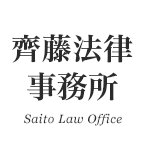Best Antitrust Litigation Lawyers in Tokyo
Share your needs with us, get contacted by law firms.
Free. Takes 2 min.
List of the best lawyers in Tokyo, Japan
About Antitrust Litigation Law in Tokyo, Japan
Antitrust litigation in Tokyo, Japan refers to legal actions related to the enforcement of laws that promote fair competition and prevent anti-competitive practices among businesses. The primary law governing antitrust matters in Japan is the Act on Prohibition of Private Monopolization and Maintenance of Fair Trade, commonly known as the Antimonopoly Act (AMA). The Japanese Fair Trade Commission (JFTC) is responsible for ensuring that businesses comply with these regulations. Tokyo, as Japan’s business and financial hub, sees a significant amount of antitrust activity, which can lead to complex disputes involving both Japanese and international companies operating in the city.
Why You May Need a Lawyer
Legal advice from a skilled antitrust litigation attorney is often required for various reasons. Common situations include:
- Your company is being investigated by the JFTC for suspected anti-competitive behavior, such as price fixing, bid rigging, or market allocation.
- You are the victim of unfair business practices by competitors, such as exclusionary tactics or abuse of market dominance.
- You wish to file a lawsuit for damages caused by anti-competitive actions of other businesses, or you are defending such a claim.
- Your company is considering a merger, acquisition, or collaborative agreement and needs guidance to ensure the actions comply with antitrust laws.
- You have received a cease and desist order, or are undergoing a dawn raid, from the authorities.
- Your organization operates internationally and needs to understand the implications of Japanese antitrust law on global business conduct.
In all these cases, antitrust matters can have serious legal and financial consequences. A qualified lawyer can help navigate the regulatory landscape, represent your interests before local authorities or courts, and provide advice on compliance to avoid future legal risks.
Local Laws Overview
The core antitrust law in Tokyo, and broadly in Japan, is the Antimonopoly Act (AMA). Key features of this law include:
- Prohibition of Private Monopolization: Businesses may not control markets or prevent fair competition through monopolistic practices.
- Ban on Unreasonable Restraint of Trade: Agreements or coordinated behavior that restrict competition, such as cartels or price fixing, are illegal.
- Regulation of Mergers and Acquisitions: Mergers that may result in substantial restraint of competition are subject to scrutiny and must be approved by the JFTC.
- Exclusionary Conduct: Dominant firms cannot use their position to unfairly eliminate or impede competition.
- Enforcement and Penalties: The JFTC is empowered to investigate, issue cease and desist orders, and impose substantial fines for violations. Violations can also lead to criminal sanctions for individuals and civil liability for damages.
In Tokyo, litigation arising from alleged antimonopoly violations can be brought before the Tokyo District Court or, on appeal, the Tokyo High Court. Cases can be complex, particularly when they involve cross-border issues or require coordination with foreign regulatory agencies.
Frequently Asked Questions
What is considered an antitrust violation in Tokyo, Japan?
Antitrust violations in Tokyo generally include price fixing, bid rigging, market allocation, abuse of dominant market position, and unfair trade practices that harm competition, as defined under the Antimonopoly Act.
Who enforces antitrust laws in Tokyo?
The Japanese Fair Trade Commission (JFTC) is the government agency that enforces antitrust laws across Japan, including Tokyo.
Can individuals or companies file lawsuits for damages related to antitrust violations?
Yes, individuals or companies harmed by violations of antitrust laws can file civil lawsuits to seek compensation for damages in addition to investigations by the JFTC.
What are the possible penalties for antitrust violations?
Penalties include cease and desist orders, administrative fines (surcharges), criminal prosecution, imprisonment, and civil liability for damages to affected parties.
Is it possible to negotiate with the JFTC if investigated?
In some cases, the JFTC offers leniency programs that may reduce penalties for companies or individuals who voluntarily report anti-competitive conduct and cooperate with investigations.
Does antitrust law only affect large businesses?
No, antitrust law applies to businesses of all sizes. Small and medium enterprises can also be subject to investigations and penalties if found in violation.
What is a dawn raid?
A dawn raid is an unannounced investigation where JFTC officials visit business premises to obtain evidence of suspected antitrust violations.
How can companies ensure compliance with antitrust laws?
Compliance programs, staff training, regular internal audits, and legal consultations are effective ways to reduce the risk of violations and demonstrate good faith to authorities.
Are there any defenses against antitrust allegations?
Yes, depending on the circumstances, defenses may address the lack of impact on competition, lawful pro-competitive objectives, or procedural issues with the investigation.
How long does antitrust litigation usually take in Tokyo?
The duration varies depending on case complexity, but antitrust litigation often extends for several months to years due to the need for extensive evidence and expert testimony.
Additional Resources
Several organizations and resources can assist with antitrust inquiries or disputes in Tokyo:
- Japanese Fair Trade Commission (JFTC): The primary regulator of antitrust matters in Japan.
- Japan Federation of Bar Associations: Provides directories for qualified legal professionals specializing in antitrust law.
- Ministry of Economy, Trade and Industry (METI): Offers guidance, especially regarding mergers and policy updates.
- Tokyo District Court: Handles antitrust litigation at the first instance.
- Consumer Affairs Agency: Can assist individuals or businesses affected by unfair trade practices.
- Business associations, such as the Tokyo Chamber of Commerce, can provide compliance training and advice.
Next Steps
If you believe you are involved in an antitrust issue or require legal guidance regarding competition law in Tokyo, consider the following steps:
- Gather all relevant documents, contracts, correspondence, and evidence related to the situation.
- Seek an initial consultation with a lawyer who specializes in antitrust or competition law in Tokyo.
- Be prepared to discuss the details honestly and thoroughly to allow for proper legal assessment.
- Your lawyer will advise you about possible legal strategies, compliance actions, and representation for negotiations or court proceedings.
- If under investigation, follow legal guidance during interactions with the JFTC or authorities and ensure cooperation within your legal rights.
- Consider implementing or reviewing internal compliance programs to minimize future risks.
Taking swift and informed action can help protect your rights, minimize risks, and strategically resolve antitrust disputes in Tokyo, Japan.
Lawzana helps you find the best lawyers and law firms in Tokyo through a curated and pre-screened list of qualified legal professionals. Our platform offers rankings and detailed profiles of attorneys and law firms, allowing you to compare based on practice areas, including Antitrust Litigation, experience, and client feedback.
Each profile includes a description of the firm's areas of practice, client reviews, team members and partners, year of establishment, spoken languages, office locations, contact information, social media presence, and any published articles or resources. Most firms on our platform speak English and are experienced in both local and international legal matters.
Get a quote from top-rated law firms in Tokyo, Japan — quickly, securely, and without unnecessary hassle.
Disclaimer:
The information provided on this page is for general informational purposes only and does not constitute legal advice. While we strive to ensure the accuracy and relevance of the content, legal information may change over time, and interpretations of the law can vary. You should always consult with a qualified legal professional for advice specific to your situation.
We disclaim all liability for actions taken or not taken based on the content of this page. If you believe any information is incorrect or outdated, please contact us, and we will review and update it where appropriate.














